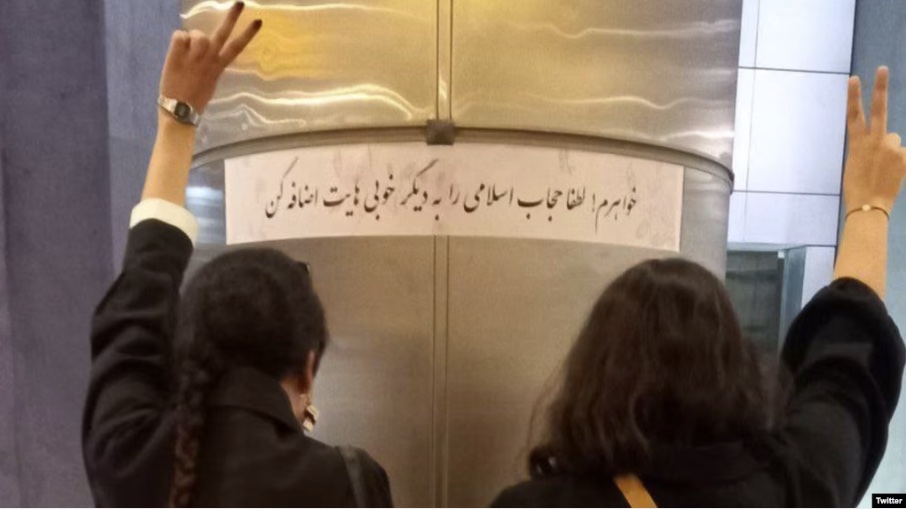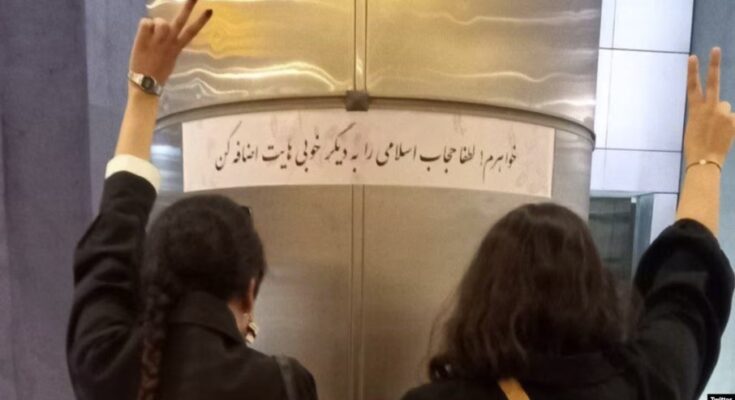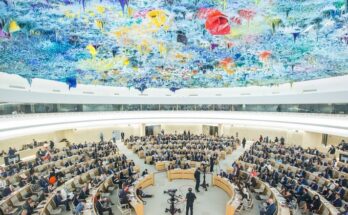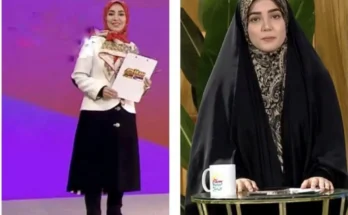Source: RFE/RL’s RadioFarda

The Iranian hacktivist group Edalat-e Ali has published documents that it says show that a top Iranian prosecutor confirmed that a “full naked body inspection” of a female political prisoner had taken place at a police detention center.
The information, which Edalat-e Ali said it obtained by hacking into Iran’s judiciary, came to light amid multiple complaints from women who have been subjected to such intrusive searches in Iranian prisons.
Edalat-e Ali, which claims to work inside Iran to expose the “true face of the regime,” said that the confidential documents reveal that Ahmad Rahmaniyan, first deputy of the public and revolutionary prosecutor, last year wrote to the head of the judiciary’s Protection and Information Office confirming that the inspection of political prisoner Mojgan Kavousi was conducted in October 2021 in several stages at the Karaj Information and Security Police Detention Center.
The Human Rights Activists News Agency (HRANA) had previously reported that Kavousi spent three days in the police detention center during her transfer to Kachouei Prison in Karaj. She was held among defendants charged with crimes and was subjected to a “full naked body inspection,” according to HRANA. The report also highlighted the mistreatment and insults she endured from law enforcement officers.
Rahmaniyan’s letter was a response to a communication from the Judiciary’s Protection and Information Office to his boss, Ali Alghasi-Mehr, the public and revolutionary prosecutor of Tehran. The office wrote the communication to inquire about the searches.
The response from Rahmaniyan, classified as confidential, was first unveiled by the BBC’s Persian Service and referred to HRANA’s report on the treatment of Kavousi.
The Judiciary’s Protection and Information Office confirmed in the communication that Kavousi was held with ordinary criminal defendants for three days in the police detention center and was “disrespected and mistreated by officers.”
Numerous other political and civil prisoners have reported inhumane and illegal treatment of prisoners in Iran, especially female detainees, and have called for international organizations to investigate the situation in Iranian prisons.
In one of the accounts, women’s rights activist Mojgan Keshavarz described her treatment during her detention in 2019. Keshavarz said last month that government officials forced her to completely undress for a photo and — allegedly to ensure that she had not hidden a mobile phone in her vagina — forced her to “sit and stand” with her “legs open.”
Keshavarz’s narrative was echoed soon afterwards on social media by other women who said they had been subjected to similar treatment.
Zeinab Zaman, another activist, said that after her arrest, she was forced to strip naked in the detention center building and another time in the courthouse.
A week after Zaman’s complaint, the Islamic Republic’s judiciary responded to the revelations in a statement, writing that in cases where there is a “need for a full body check,” these types of inspections are carried out “in accordance with legal, religious, and privacy considerations,” and that female prisoners are inspected only by female officers.
The statement did not explain how the full body searches of female prisoners are conducted to meet the considerations.
The statement continued that if individuals claim they have been inspected “outside the standards,” they should present their cases to the Prisons Organization’s Inspection and Security and Educational Measures so that the matter can be pursued.
The number of females detained in Iran has grown since the death of Mahsa Amini in September while in police custody for an alleged head-scarf offense.
Women have been at the forefront of the unrest that Amini’s death unleashed in Iran, posing one of the biggest challenges to authorities since the 1979 Islamic Revolution.
Written by Ardeshir Tayebi based on an original story in Persian by RFE/RL’s Radio Farda




